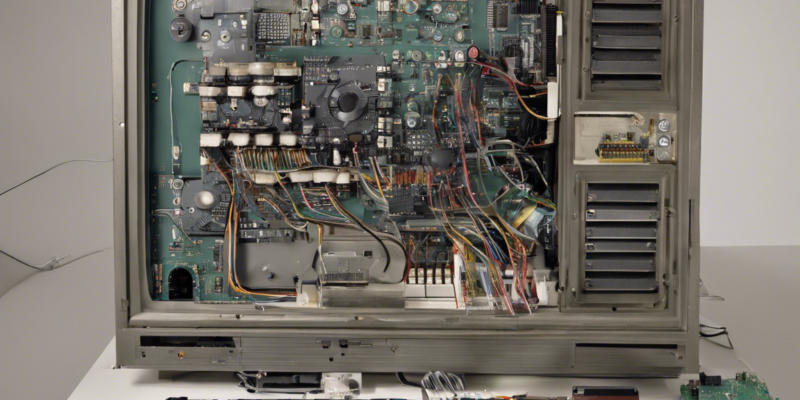When you think of a computer, the hard drive is typically one of the first components that come to mind. It’s where all your files, programs, and operating system are stored, and it plays a critical role in the functionality of your machine. However, contrary to popular belief, a computer can still operate without a hard drive. In this article, we will explore the various scenarios in which a computer can function without its primary storage device.
The Role of the Hard Drive
The hard drive is an essential component of a computer system. It is a non-volatile storage device that stores and retrieves digital information using magnetic storage and spinning disks. When you turn on your computer, the operating system is loaded from the hard drive into the computer’s memory (RAM), allowing you to interact with the machine and run various programs and applications. Additionally, the hard drive stores all your personal files, such as documents, photos, videos, and music, making it a crucial component for everyday computing tasks.
Operating Systems and Booting Without a Hard Drive
While the hard drive is typically the primary storage device for the operating system, it is not the only option. In fact, there are several alternative methods for a computer to boot and operate without a hard drive:
1. Live USB/CD
One of the most common ways to boot a computer without a hard drive is by using a live USB or live CD. A live USB contains a bootable operating system that can be loaded directly from a USB flash drive, allowing you to run the operating system without installing it on the computer’s hard drive. Similarly, a live CD works in the same way but uses a compact disc instead of a USB drive.
2. Network Booting
Another method for operating a computer without a hard drive is through network booting. In this setup, the computer loads the operating system from a network server instead of a local storage device. This is commonly used in enterprise environments where centralized management of multiple computers is necessary.
3. RAM Disk
A RAM disk is a portion of the computer’s RAM that is configured to emulate a storage device like a hard drive. While the data stored in a RAM disk is volatile and will be lost when the computer is powered off, it can be used to run an operating system or specific programs without the need for a physical hard drive.
Advantages of Operating Without a Hard Drive
Operating a computer without a hard drive offers several advantages, including:
- Portability: Live USBs and CDs allow you to carry your operating system and files with you wherever you go, making it convenient for troubleshooting or using multiple computers.
- Security: Since the operating system is not installed on a local hard drive, there is a reduced risk of malware infections or data loss due to hard drive failures.
- Speed: Loading the operating system from a fast USB drive or network server can result in faster boot times compared to traditional hard drives.
Frequently Asked Questions (FAQs)
Here are some common questions about operating a computer without a hard drive:
1. Can a computer run without a hard drive?
Yes, a computer can run without a hard drive by using alternative boot methods such as live USBs, network booting, or RAM disks.
2. What happens if you remove the hard drive from a computer?
If you remove the hard drive from a computer, the computer will not be able to boot into the operating system or access any stored files. However, it may still be able to boot from other devices or a network server.
3. Can you install an operating system on a USB drive?
Yes, you can install an operating system on a USB drive and use it to boot a computer without a hard drive. This is commonly done with Linux distributions like Ubuntu or Fedora.
4. Is it safe to run a computer without a hard drive?
Running a computer without a hard drive can be safe as long as you take necessary precautions to protect your data and ensure the security of your system. Using live USBs or network booting minimizes the risks associated with running a computer without local storage.
5. What are the limitations of operating without a hard drive?
One of the main limitations of operating without a hard drive is the lack of permanent storage for files and programs. Additionally, running an operating system from external devices like USB drives may be slower than using a traditional hard drive.
In conclusion, while the hard drive is a fundamental component of a computer system, it is possible to operate a computer without one using alternative boot methods. Whether you need to troubleshoot a system, improve portability, or enhance security, running a computer without a hard drive can be a viable option for various scenarios. By exploring alternative storage solutions and boot methods, you can experience the functionality of a computer even in the absence of a traditional hard drive.


Comments